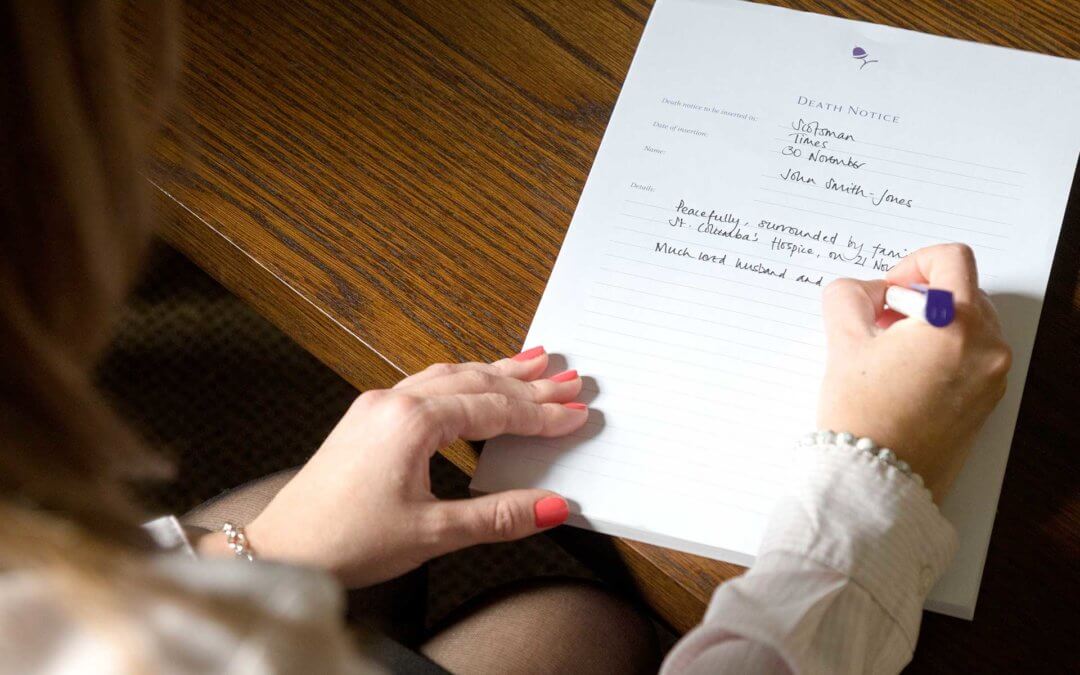When facing a bereavement, an early challenge for all families is how they can best share the news amongst people – near and far. MD James Morris explores how this can be done in 2021.
Sharing the news with a deceased’s wider circle avoids potentially awkward moments where someone obviously hasn’t heard. It also reduces the impact of sharing bad news for the benefit of those left behind. In the UK, we’re traditional, advising family first with close friends second. Only then do we widen the network to include neighbours, former colleagues, and acquaintances going back.
For many years using newspapers was the main way to share information. Every local rag and even the heritage broadsheets have their own ‘Births, Deaths and Marriages’ classified sections. People ‘of a certain age’ always opened their paper at these pages first.
Before Covid, informing those who may be likely to attend a funeral may have influenced the flow of information. With social distancing restrictions still applied to funerals in the UK, attendance is less important. Added to which, technology speeds things up. Social media, digital announcements, website obituaries complement conventional phone-calls and emails.
No matter what medium you choose, I recommend three rules for preparing an intimation.
- Keep it short and simple
- Key facts matter. Tributes and memories are for the funeral
- It should be written so that no-one says “I wonder if that’s the person I’m thinking of”
An example:
Surname, Forename and town/city of residence (with former notable location if required)
Date of death and often the hospital, nursing home, hospice location. This subtly directs people as to the cause of death and where it was unexpected, we often prefix a notice with “suddenly”.
Location of funeral, date and time and clarity over numbers – again, we use a single-word “private” or “limited”. Advice on floral and donation preferences if required.
Finally, never discount the power of the good old grapevine where friends and colleagues share the news amongst those who have known both the person who has died and their family.
When it comes to telling people, funeral directors are here to help. We host online obituaries that can be shared and tagged amongst wider networks on social media. We place and proof newspaper notices on behalf of families.
Writing a notice can be tough at an already difficult time, so lean on our experience when you need it the most.


